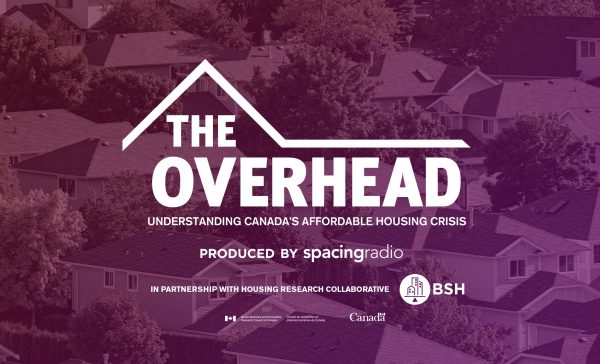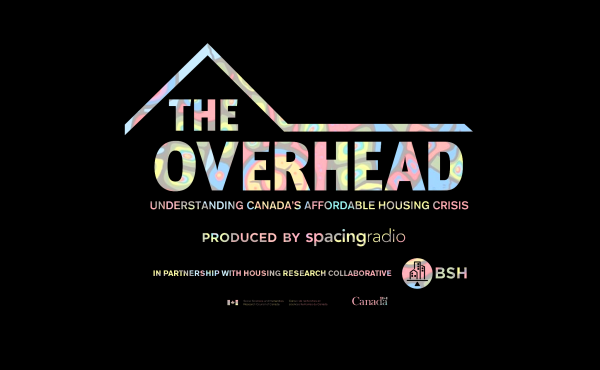Spacing and the Balanced Supply of Housing research node proudly present The Overhead: Understanding Canada’s Affordable Housing Crisis, a special podcast series.
THIS EPISODE: Fixing the housing market
The housing market is one everyone’s minds these days. It determines who can live where, who can afford to buy a home, or even afford rent. It keeps some people in poverty, while making a small few incredibly rich. Is there a way governments, at various levels, can help bring some stability to an unstable market?
To begin our discussion, we speak to University of British Columbia associate professor Thomas Davidoff, director of the Centre for Economics and Real Estate, who co-authored a revealing study about laneway houses in Vancouver:
“Neighbourhoods that have relatively low prices (and of course it’s relative in the City of Vancouver), so the east side of Vancouver, there doesn’t seem to be any adverse effect on neighbouring property values. But the effect is bigger on the order of 5 to 7% in the more affluent neighbourhoods.”
On the other side of the country, in Montreal, we talk to McGill University associate professor David Wachsmuth about the outsized influence short term rentals such as AirBnB have on rent prices, and what governments can do to rein thing in.
“AirBnb — now more so than in the past, thankfully — they have some interest in being regarded as a cooperative corporate citizen. So if particularly provinces where the real power here is, they’ve got a lot of carrots and they’ve got a lot of sticks, and it’s simply just a question of deciding to make this a priority.”
What can these two examples teach us about shaping the housing market and improving affordability?
Listen here for The Overhead:




